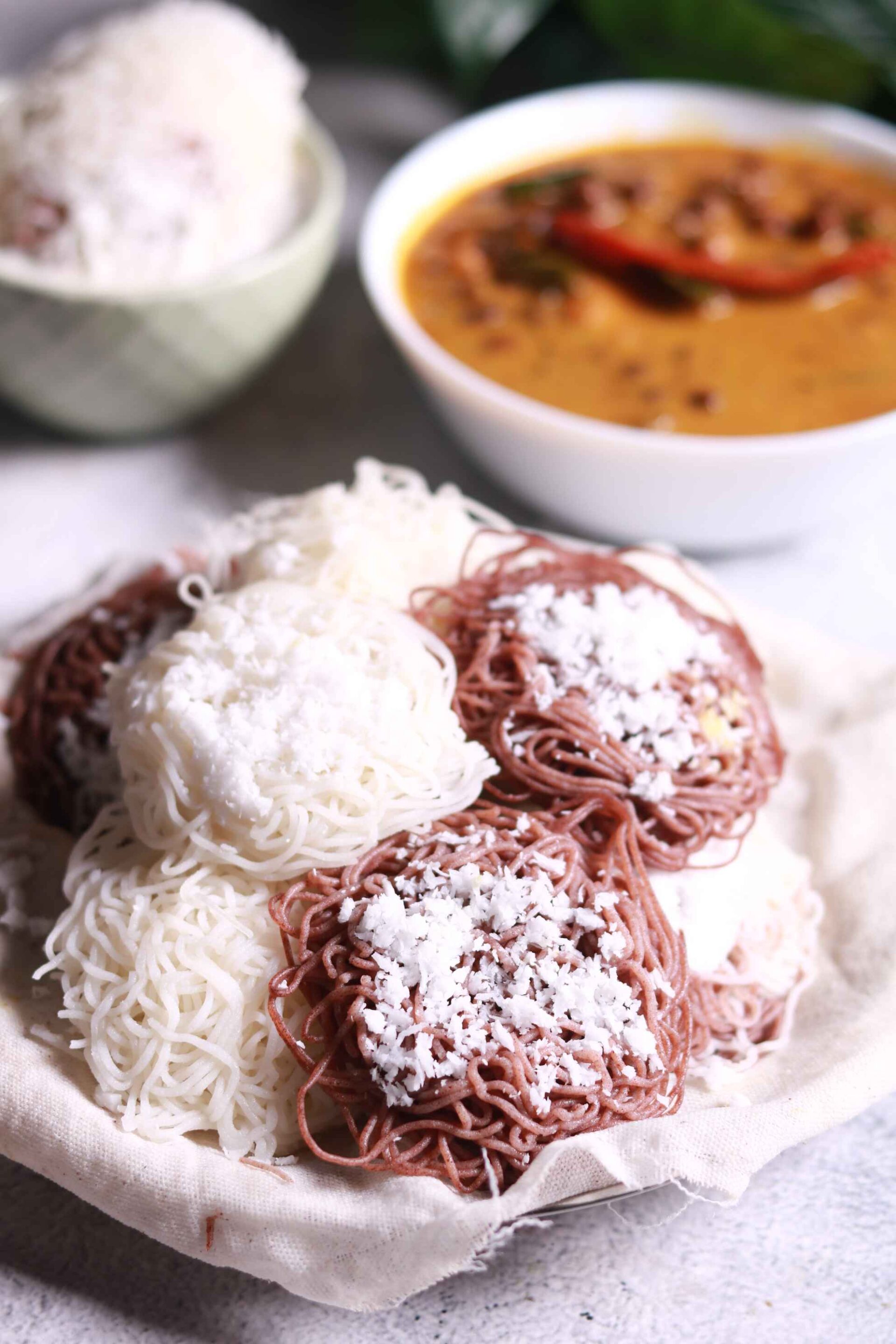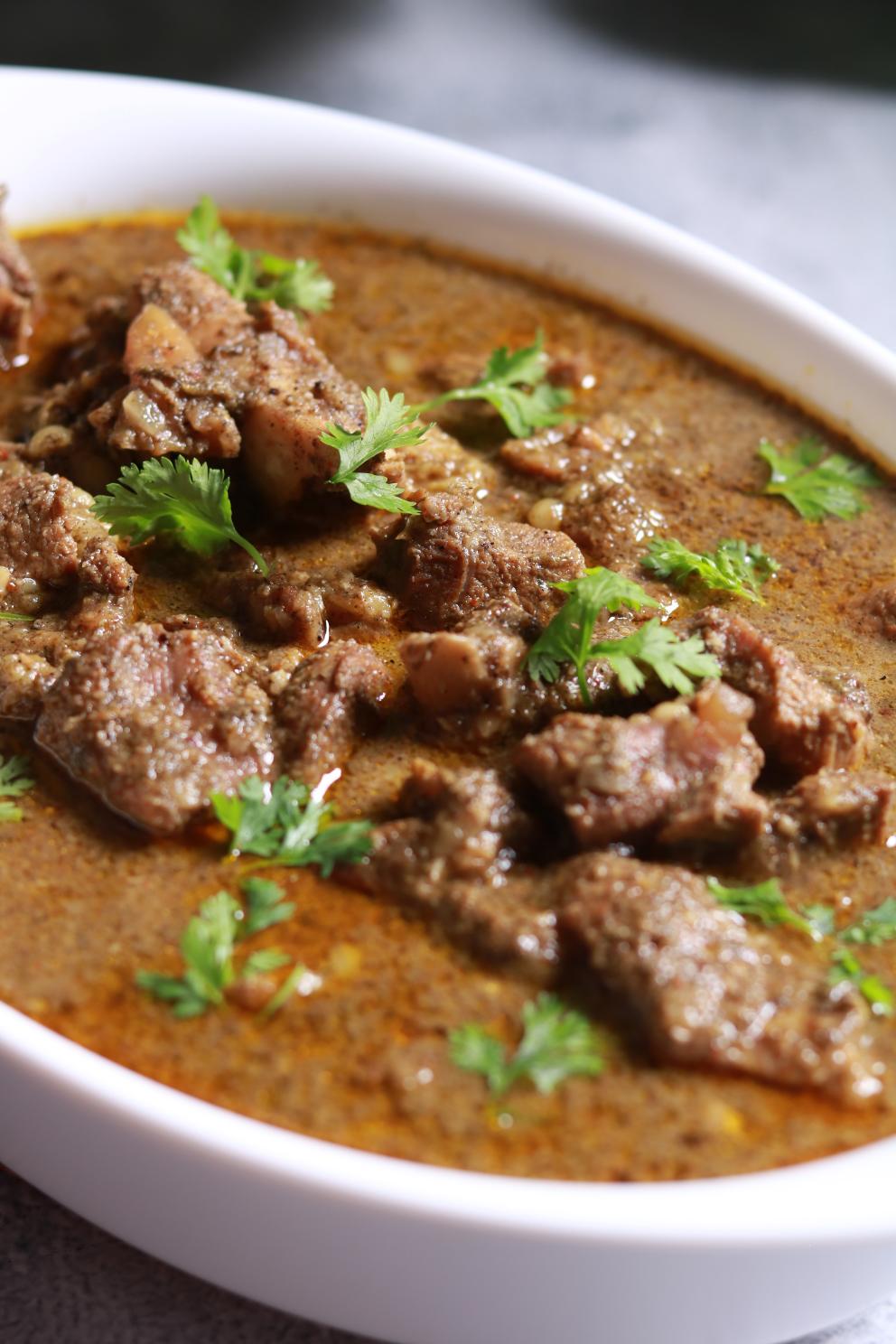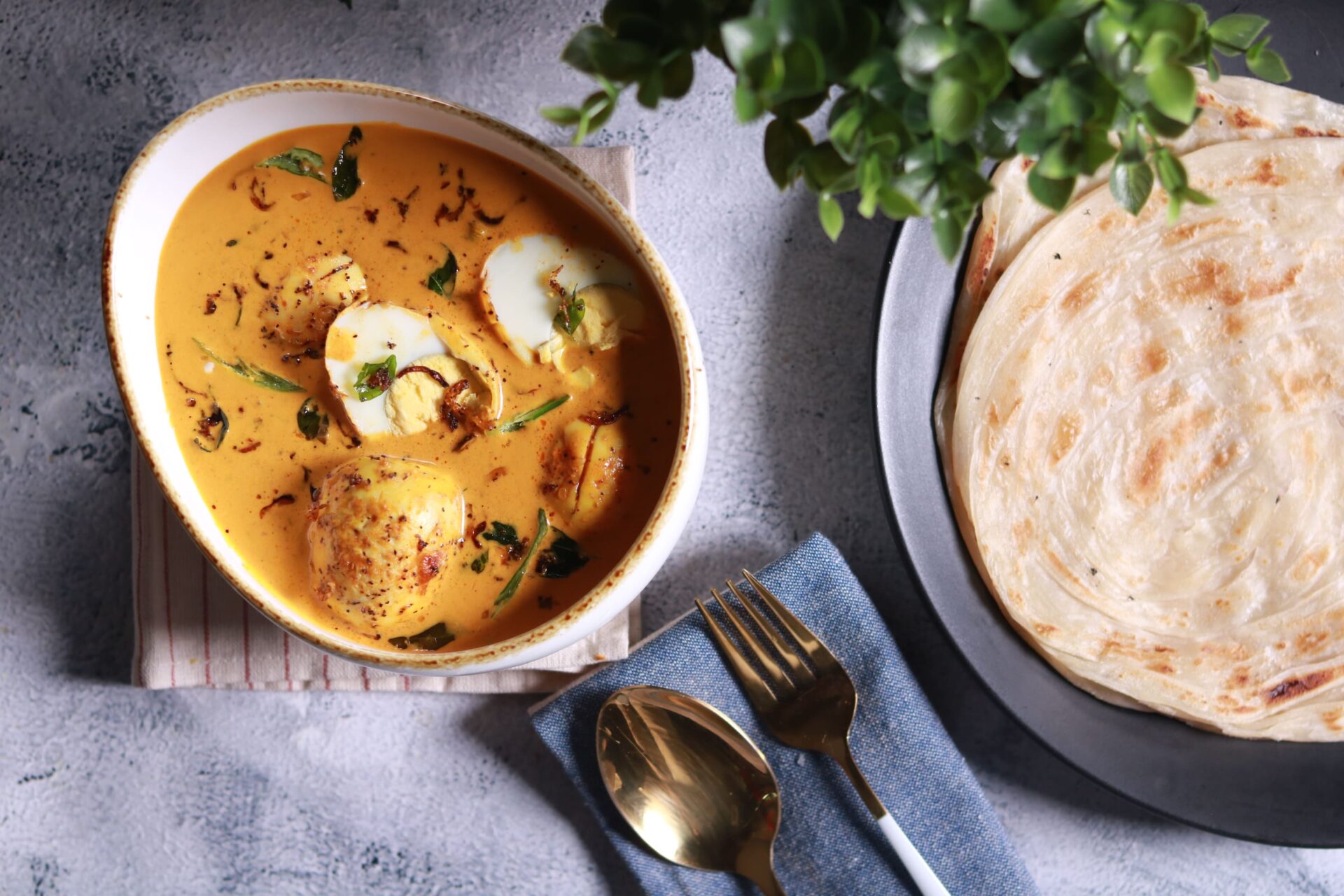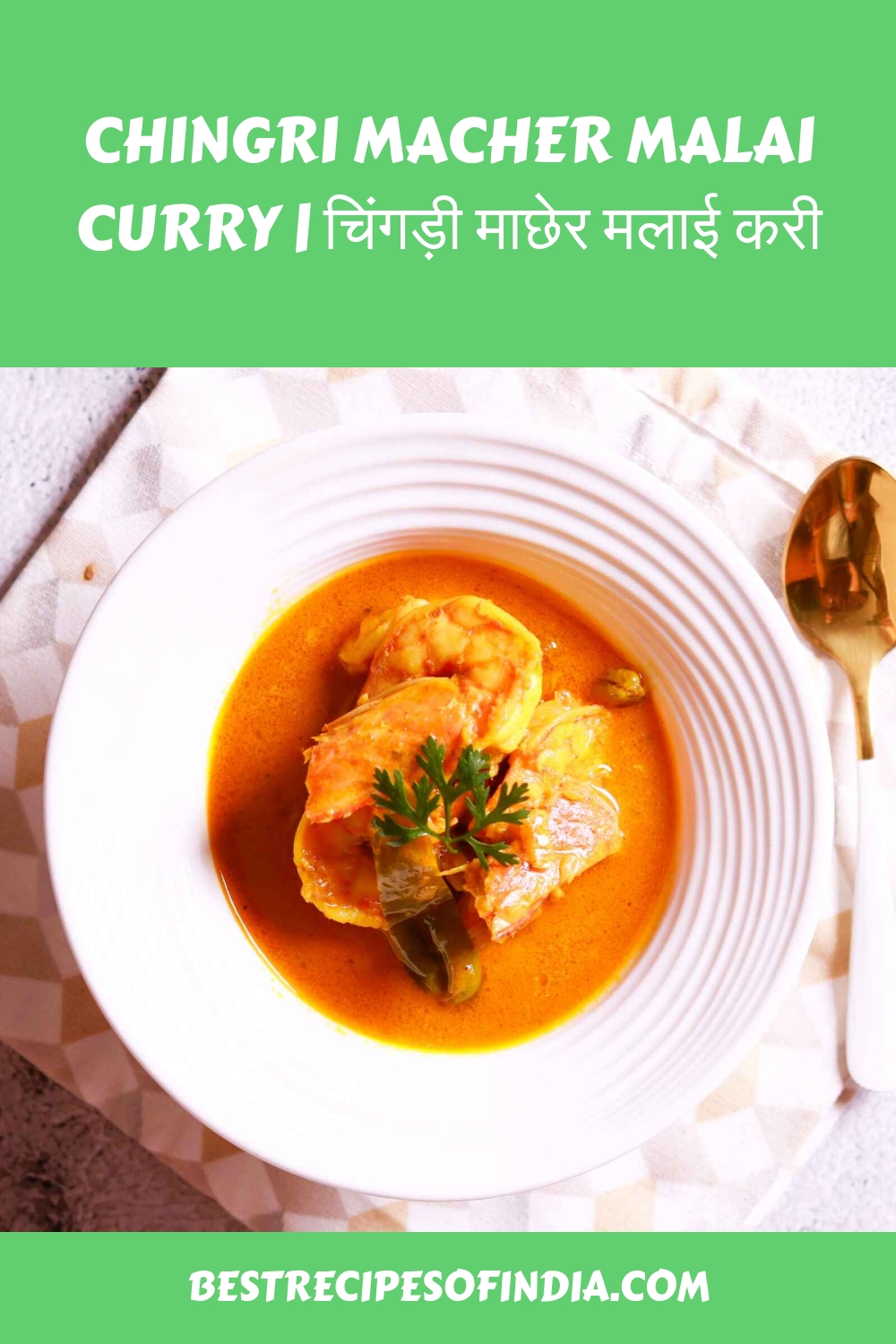Bengali food has a long history, just as it is delicious. This is best shown in dishes like the Chingri Macher Malai Curry recipe. Once you look closely at this dish, characterized by its malai, prawn, and spices, it is indeed one of the most popular dishes that all Bengalis cherish worldwide. But apart from these seasonings that repeatedly make you hungry, there is a fascinating narrative of how external factors from Malaysia and Southeast Asia could have caused this curry to evolve.


About Chef Arjyo
Chef Arjyo is more than my mentor, and I have trained under him for a good 13 years, but more than that, he was the kind of person who, without fail, thought that behind every plate of food lies a simple story, a culture, a history. I still remember how he invited me to his place and demonstrated how this good food was prepared on that particular day. “Take your time,” was how he put it. “Every detail matters. Bengali food does not take days to prepare. It takes proper timing.” Those are the words I still hear each time I decide to prepare this dish and turn the gas on.
A Brief History of Bengali Chingri Macher Malai Curry
The Chingri Macher Malai Curry, at its most basic, is a coconut-based spicy prawn curry with moderate sweetness, which is characteristic of most Bengali recipes. Nevertheless, the term “malai” sparked a lot of arguments and divergences. Many people assume that the word in the context of the dish refers to the thick consistency because malai is Hindi for cream. However, a less common theory suggests that this tea term may be attributable to the ‘Malay,’ thus indicating some Malay or Southeast Asian influence on the dish. This theory becomes more credible when considering Bengal’s past position as an essential spice trade centre.
At the peak of the spice age, merchants and seamen from all over the world, including Malaysia, Indonesia, and other Southeast Asian countries, regularly visited ports in Bengal. It is thought that these merchants also craved coconut-based foods like the Malay Kari Udang (Malaysian coconut prawn curry) and laksa (spicy coconut soup). Both cuisines are rich, fragrant, and mostly coconut milk-based curries, as with Chingri Macher Malai Curry.
This is a little advice on this dish from Chef Arjyo
Sauté prawns shouldn’t be missed: People take this step as optional, but this is very important and will give you the crunch and taste you need.
Get fresh coconut milk when you can: This is a reminder that while coconut milk powder is a common alternative, fresh, squeezed coconut milk is superior to almost anything.
Add sugar: Only one teaspoon of sugar is all it takes to balance out the curry, making more of the sweet and the spicy.
Cook the masala on low flame: This is a game of patience. Do not add the coconut milk until the onions and spices have had enough cooking time.
Read More Yummy Seafood Recipes
- Kerala Prawn Fry Recipe | केरला प्रॉस फ्राई : Simply Delicious!
- Macher Jhal Recipe | माछ ऐर झाल: Authentic Bengali Fish Curry
- Crab Xec Xec: Goan Crab Curry Recipe
- Authentic Goan Fish Curry Recipe
Chingri Macher Malai Curry Recipe: Photo Gallery










Frequently Asked Questions on Bengali Chingri Macher Malai Curry
Q1-Is coconut milk of utmost importance in Chingri Macher Malai Curry?
Definitely! Coconut milk is essential to the dish, bringing forth that sumptuous thick curry in Chingri Macher Malai Curry. Due to the heavy use of coconut in curries, it is thought to have been borrowed from culinary traditions from Southeast Asia, particularly Malaysia.
Q2-Can I use shrimp instead of prawns for this recipe?
Sure! Although prawns are the usual choice, shrimp may be substituted without sacrificing flavour. The only thing to be careful about is adjusting the time they are cooked so they are not overcooked.
Q3-What is the purpose of using mustard oil in Bengali dishes?
Bengali cuisine is rich in mustard oil, pungently strong in flavour, and harmonized with seafood and vegetables. It gives dishes like Chingri Macher Malai Curry a distinctive depth of taste.
Q4-Is there a vegetarian alternative to Malai Curry?
Oh yes! To make a vegetarian version of Malai, you must replace the prawns with vegetables such as cauliflower, paneer, or mushrooms. Mash up the coconut base as you would in Malai curry.
Q5-How do I reduce the spiciness of this dish?
For the Vigorous Chingri Macher Malai Curry, you can decrease the quantity of red chilli powder and omit the green chilli. When combined with other ingredients, coconut milk’s sweetness will help soften the dish.
Q6-What ingredients can I include when serving Chingri Macher Malai Curry?
Usually, this dish is accompanied by steamed plain white rice, which goes wonderfully well with the rich gravy. White basmati rice with light pulao may be served with this if you want a slightly more celebratory meal.
Ingredients
- 300 gm Prawns cleaned, deshelled, and deveined (keep the heads intact for flavor)
- ½ tsp Turmeric powder
- 1/2 tsp Red chili powder
- 1/2 tsp Salt
For Sautieng Prawns
- 1 Tbsp Mustard Oil
For the Curry:
- 2 tbsp Mustard oil for sautéing
- 2-3 green 2-3 green cardamom pods
- 1 no Bay leaf
- 1 no Garlic clove finely chopped
- 1 no Medium onion finely chopped
- 1 no Green chili optional, for heat
- 2 tbsp Canned tomato puree
- 2 tbsp Fresh tomato puree
- 1 tsp coriander stems chopped (for extra flavor)
- 1/2 tsp Turmeric powder
- 1/2 tsp Red chili powder
- 1 tsp Sugar
- 50 gm Coconut milk powder or use coconut milk directly
- 1 ½ Cup Water
- 1 tsp Salt adjust to taste
- 1/2 tbsp Ghee
- 1 Tsp Fresh coriander for garnish
- 2 Pinch Garam masala for finishing
Instructions
Marinating the Prawns:
- Clean and prep the prawns, leaving the heads intact. The heads and shells have a lot of flavor, which gives a rich taste to the curry.
- Marinate the prawns with turmeric, red chili powder, and salt. Let them sit for about 10-15 minutes. This helps infuse the prawns with flavor before cooking.
Sautéing the Prawns:
- Heat 2 tbsp of mustard oil in a pan until it’s hot but not smoking.
- Sauté the marinated prawns for 2-3 minutes, just until they start turning a bright orange color. This step locks in the juices and gives a slightly charred, smoky flavor that’ll enhance the curry.
- Once done, remove the prawns from the pan and set them aside.
Preparing the Curry
- In the same pan, add a bit more mustard oil if needed. Temper the oil by adding cardamom pods and a bay leaf. This step builds the base flavor for the curry.
- Add the finely chopped garlic and sauté until it turns golden brown. This adds depth and a rich, nutty flavor.
- Add the chopped onions and green chili, and sauté until the onions are golden brown. This forms the foundation of the curry's body and sweetness.
- Add the canned tomato puree and fresh tomato puree along with the chopped coriander stems. The mix of fresh and canned tomatoes gives the curry a balanced tanginess.
- Add turmeric powder, red chili powder, and salt. Sauté the masala for a few minutes until the oil starts to separate. If the masala seems too dry, add a few splashes of water to prevent burning and to cook the spices properly.
- Prepare the coconut milk by whisking the coconut milk powder with water (or just pour in coconut milk if using fresh). Add this to the curry and mix well.
- Add water and bring the curry to a simmer. Let it cook for about 10 minutes on medium flame, allowing the flavors to develop.
- Now, add the sautéed prawns to the curry and cook for another 3-4 minutes. Be careful not to overcook the prawns as they can become tough.
- Finish the curry with a sprinkle of garam masala and a dash of ghee for a rich, buttery finish.
- Garnish with fresh coriander and serve hot with steamed rice.
Explore Our Latest Recipes
-

Authentic Idiyappam Recipe: Soft String Hoppers from South India
Authentic Idiyappam- Hey there, if you’ve ever been lucky enough to dig into a plate of fluffy Idiyappam at a South Indian home or restaurant, you know that magic—those delicate rice noodles, steamed to perfection,… Read more
-

Authentic Kala Mutton Curry (Black Mutton)
Hey there, if you’re craving something rich, smoky, and downright addictive, let’s talk about black mutton curry, or kala mutton as it’s known in Maharashtra. This Maharashtrian gem gets its name from the deep, almost black… Read more
-

Traditional Kerala Egg Curry with Coconut Milk (Mutta Curry)
If there’s one dish that makes a slow, rainy morning in Kerala feel extra cozy, it’s a Traditional Kerala egg curry with coconut milk, served with soft Paratha or lacy dosa. This is the kind… Read more




















Amazing cooking …Bengali Chingri Macher Malai Curry ..loved it